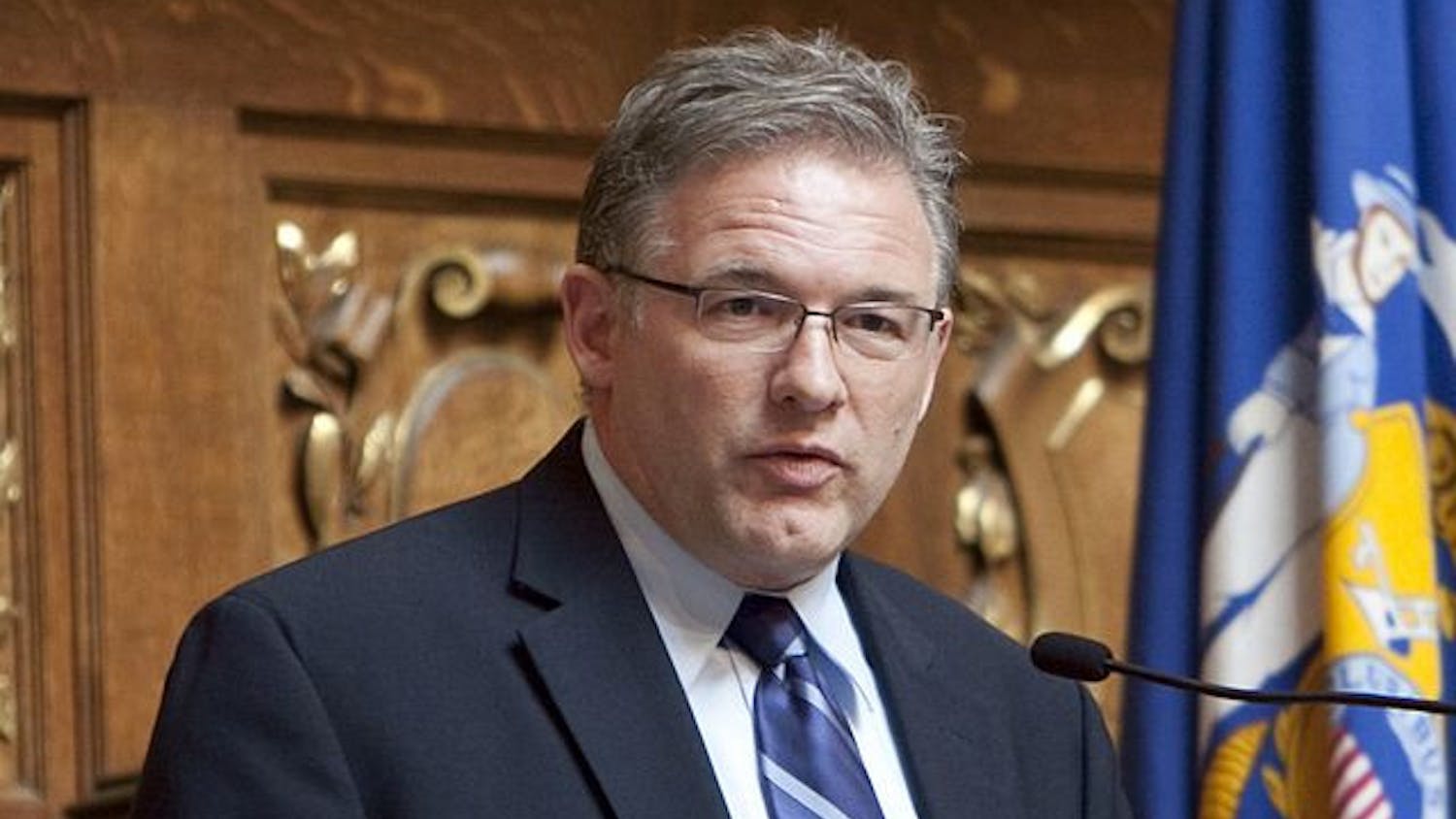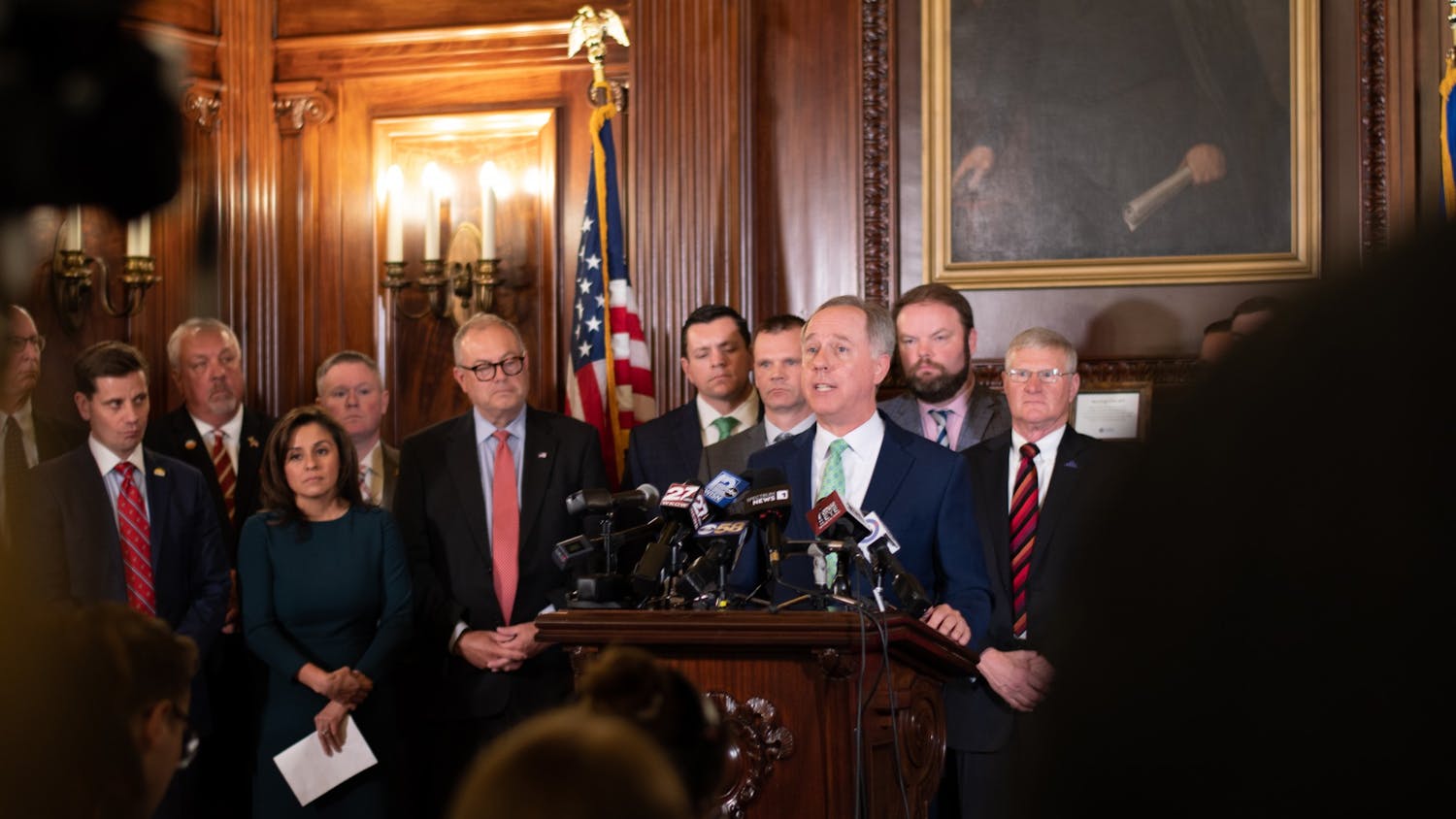In Kentucky to debate Vice President Joe Biden Thursday, vice presidential hopeful and U.S. Rep. Paul Ryan, R-Wis., finds himself in the unique position this fall of convincing voters he is the right man for two jobs, even if he can’t have both of them.
Ryan has represented Wisconsin’s First District in Congress for 14 years, but his opponent in the upcoming election, former Kenosha county official Rob Zerban, is looking to change that.
Ryan can simultaneously run for Congress and vice-president under what is known as the “LBJ law,” named for former President Lyndon Johnson, who had Texas law changed to allow him to join John F. Kennedy’s ticket in 1960.
Like Johnson, as well as Joe Biden in 2008, Ryan would have to immediately resign his congressional position if re-elected to Congress and elected to the White House on Nov. 6.
While Ryan sits in the spotlight in his bid for the second-highest office in the country, Zerban, the former owner of two small catering businesses and a political unknown, is gathering steam in Janesville.
Zerban has focused on introducing himself while accusing Ryan of abandoning the district he has represented since 1998 for the vice-presidential race.
“Serving the first district should not be a consolation prize for …not winning the vice presidency,” Zerban said in an appearance on “Hardball with Chris Matthews” ahead of Ryan’s Thursday debate.
Despite his national appearance against Biden, Ryan has been noticeably absent from Wisconsin’s smaller stage. The Republican vice-presidential nominee has debated each of his congressional opponents in past years, but he has yet to agree to debate Zerban, citing his busy schedule.
Despite the multitasking, Ryan’s campaign manager Kevin Seifert said he believes the challenge has not caught Ryan off guard, and that he will beat Zerban by reinforcing his connection and familiarity with voters.
He said Ryan separates himself from Zerban with his creativity in developing helpful plans for the country’s economy, referring to the cost-cutting budgets proposed by Ryan in his capacity as chairman of the House Budget Committee that would curb spending and alter entitlement programs.
“Paul Ryan has put his cards on the table and shown voters where he stands and they have supported him,” Seifert said.
According to campaign manager Al Benninghoff, Zerban wants to protect government initiatives such as Stafford Loans and Pell Grants that he took advantage of growing up in a single-parent household.
“People come up to [Zerban] and say, ‘I voted for Paul Ryan two years ago but I didn’t know he was so extreme on … social security,’” Benninghoff said.
University of Wisconsin-Madison political science professor Ken Mayer said he believes congressional district voters won’t respond negatively to Ryan’s election-season juggling.
“I don’t think his lack of time in the district indicates anything about how well he’s going to do,” Mayer said. “Republicans in the district understand what’s going on.”
Internal polling done by Zerban’s campaign in early September gives Ryan an 8 percent lead over his challenger when including voters “leaning Zerban,” and campaign sentiments reflect the mere single-digit difference in the polls.
“Ryan is the vice presidential choice for a reason, but he’s not an unslayable giant,” Benninghoff said.
Yet polling done over the same period in September by the Ryan campaign has the incumbents lead up to 25 percentage points—more than tripling the difference of Zerban’s numbers.
Though Zerban’s $1.2 million campaign fund is larger than that of Ryan’s previous opponents, it is still overshadowed by Ryan’s nearly $5 million. Ryan’s campaign stopped actively raising money for the congressional campaign once he joined the GOP presidential ticket.
Ryan’s advantage in the polls and with campaign money underscore the historic difficulty of unseating incumbents in the House of Representatives.
According to the Center for Responsive Politics’ opensecrets.org, more than 80 percent of incumbents retained their seats in 2010. In 2008, that rate was closer to 90 percent.
He has raised more money and support than any of Ryan’s past challengers, but Zerban has to contend with the familiarity and name-recognition historically advantageous to incumbents, according to Mayer.
“A seven-term incumbent is going to be tough to beat under any circumstances,” Mayer said.





